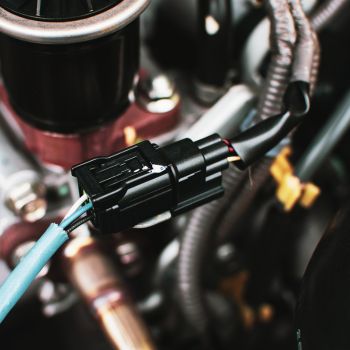 Today, sensors throughout your vehicle check the oil, tire pressure and other aspects of its performance, sending information to the Onboard Diagnostic Computer (OBD-II) in the engine control module (ECM).
Today, sensors throughout your vehicle check the oil, tire pressure and other aspects of its performance, sending information to the Onboard Diagnostic Computer (OBD-II) in the engine control module (ECM).
Sensors are not that different from other parts of your car. Damage, wear, dirt and electrical issues all impact how they take readings. Unfortunately, this pattern can mean that performance suffers on a broader scale. Here’s what you should know.
How Car Sensors Work
The ECM has increasingly been a part of vehicle design since the 1980s. Together with the OBD-II, the ECM collects and processes data from various sensors, using the information to adjust your car’s operation, response and performance. Key sensors include the:
- Oxygen Sensor, which measures the percentage of oxygen in the exhaust generated by the combustion process. It sends this data to the powertrain control module (PCM), which communicates with the ECM. In an ideal setup, your car adjusts the air-to-fuel ratio to keep emissions down. Without this level of monitoring, your engine may receive too little or too much fuel. As a result, your car may run sluggishly, get fewer miles per gallon, overheat or spew harmful emissions into the environment. Most vehicles have two oxygen sensors, including one close to the catalytic converter.
- Wheel Speed Sensors, which are integral to the ABS system and control your vehicle has on the road.
- Mass Airflow Sensors, which monitor the amount of airflow entering the engine. Your engine then uses this information to time the fuel injectors and ignition system.
- Manifold Absolute Pressure Sensor, which monitors the manifold during the combustion process.
- Fluid Level Sensor, which notes and monitors oil, coolant and other fluid levels and related engine conditions.
- Tire Pressure Sensors, which check if your tires remain at the desired PSI.
Common Sensor Issues and Signs
Over time and miles driven, sensors accumulate dirt and other particles or may be exposed to chemicals from the engine’s fluids, affecting the readings they take. Connectivity, battery and electrical issues among your car’s systems could also mean that information is not getting relayed accurately or at all back to the ECM.
Due to these factors or outright damage, signs of a defective or malfunctioning sensor can lead to:
- The check engine light coming on. This sign often indicates an electrical or communication issue affecting your car on a broader scale.
- A decrease in gas mileage. When sensors involved in the combustion process malfunction, your car goes through more fuel and you’ll notice your car gets fewer miles per gallon. This may be accompanied by black smoke from the exhaust and a rotten eggs smell.
- Engine performance issues. Due to inaccurate signals, the combustion process is somewhat disconnected and the air-to-fuel ratio gets thrown off. You may notice that your car idles roughly and loudly or the engine times out, misfires or no longer accelerates the same.
- A decline in performance. Overheating and increased wear can result in widespread sensor malfunction. The ECU doesn’t know how to adjust or makes decisions based on inaccurate data.
Is your car underperforming but you can’t find a direct cause? Have the technicians at DaSilva’s Auto Body run diagnostic tests to examine the sensors, ECM and make recommendations for repairs or replacements. Contact us today!




